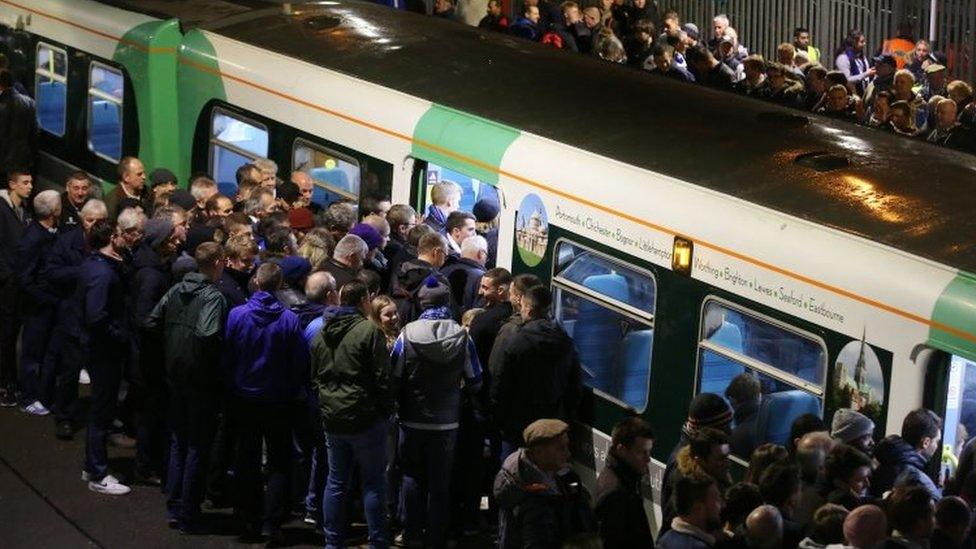Southern rail: Government fines owners over train delays
- Published
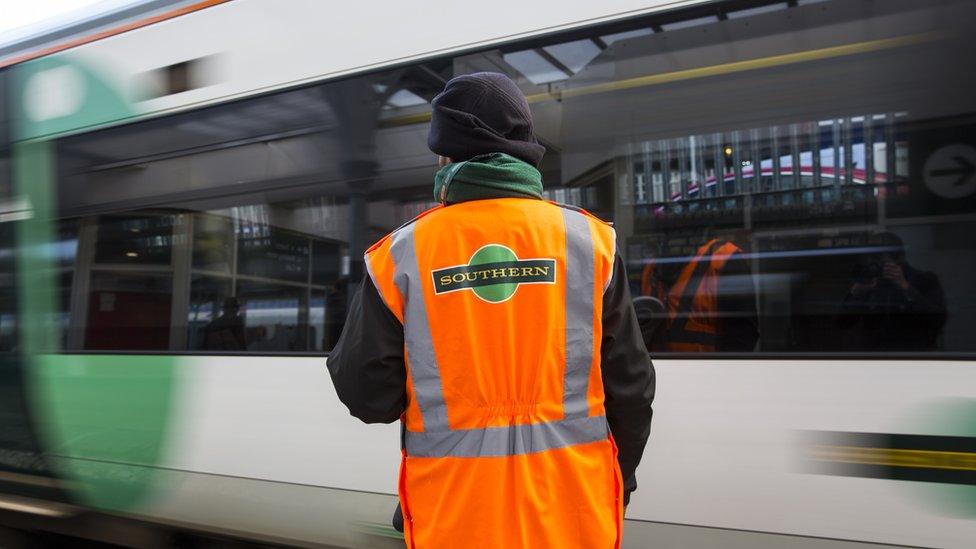
A dispute over the role of guards on trains has disrupted services for more than a year
The owners of Southern rail have been fined £13.4m for poor performance, the Department for Transport (DfT) has announced.
The government said the fine on Govia Thameslink Railway (GTR) would have been higher, but most of the delays had not been Southern's fault.
The DfT said strikes and unprecedented levels of sick leave were also factors.
The RMT union was critical of the fine, saying the government had let Southern and its parent company off the hook.
'Badly let down'
Transport Secretary Chris Grayling told GTR strike action did "not fully explain the poor service".
In a letter to Charles Horton, GTR's chief executive, he said: "Performance on Southern has improved dramatically since Christmas, as the disruption from union activity has decreased.
"But that performance is still not good enough."
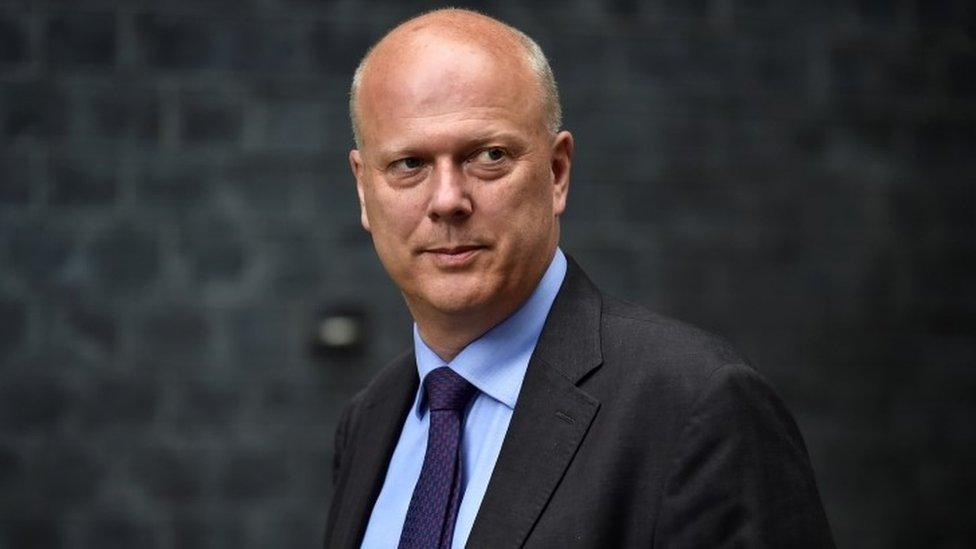
Transport Secretary Chris Grayling criticised Southern for cancelling services and running shorter trains "unnecessarily"
The transport secretary said the £13.4m was to be spent on "performance and passenger improvements", including £4m to fund 50 on-board supervisors over the next two years.
"Passengers who depend on Southern have been badly let down," Mr Grayling added.
'Global laughing stock'
A spokesman for GTR said the company accepted the fine as a "fair outcome".
He said: "The settlement acknowledges that the industrial action taken by the trade unions has been a major contributor to the disruption experienced by passengers in the past year, and we welcome the fact that a significant proportion of our claim was recognised."
Mr Horton said: "We are pleased that this issue has been concluded, and accept and are sorry that our service levels haven't been good enough for passengers."
However, general secretary of the RMT, Mick Cash, said: "This pathetic response to the abject failure by Southern/GTR to deliver on their contract doesn't even stack up to a slap on the wrist.
"No wonder the company are gloating. Chris Grayling has let them off the hook big-style.
"This is yet another case of the government and their rail industry cronies investigating themselves while the services they are responsible for are a global laughing stock."
Mick Whelan, general secretary of Aslef, added: "There is still no end in sight to the problems of Southern.
"The DfT has failed, the transport secretary has failed, and Southern has failed."
Southern has been embroiled in a bitter dispute for more than a year with the RMT and Aslef unions over driver-only operated trains.
'Token fine'
The Association of British Commuters (ABC) took legal action over what it described as a "fiasco", seeking a judicial review.
Bringing the case to the High Court last month, ABC argued ministers had acted unlawfully by failing to determine whether managers had breached franchise obligations.
However, Mr Justice Ouseley said he would not grant a judicial review on the understanding that Mr Grayling would come to a decision over the Southern rail crisis by 13 July.
Emily Yates, of ABC, said: "It [the fine] doesn't really touch the sides of this whole issue.
"This is a token £13.4m fine presented as an improvement package."
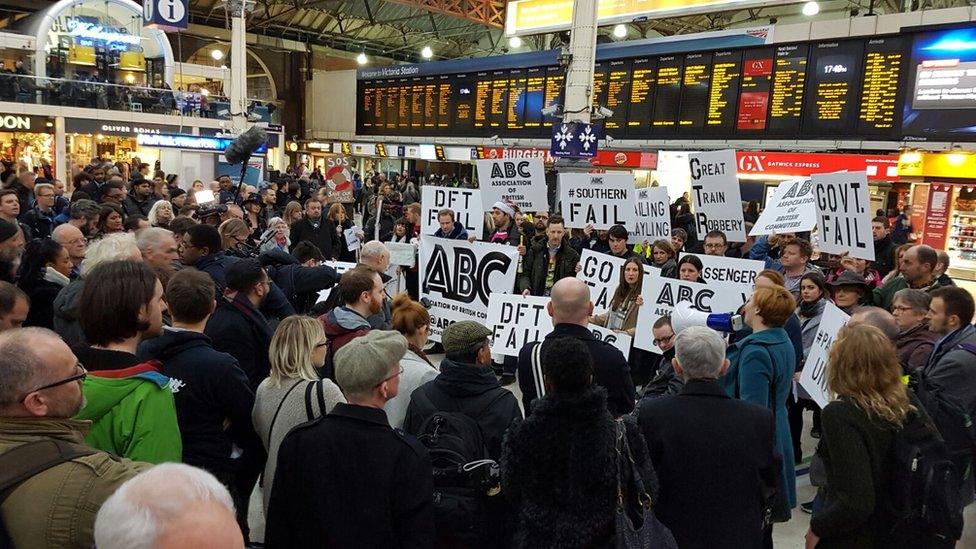
The Association of British Commuters has been campaigning for a judicial review into the government's handling of the franchise
Southern says it has never made a profit on the service.
An overtime ban by Aslef, the driver's union, which came into force on 28 June has forced Southern to axe a quarter of its train services.
Southern is operating a revised timetable affecting services in Kent, Sussex, Surrey and Hampshire.

Analysis: Richard Westcott, BBC transport correspondent
The unions and some angry commuter groups wanted the government to sack Southern but that was never going to happen.
It would mean the DfT would have to step in and run things and that's the last thing they want.
This line is complex and fraught with engineering and industrial issues.
It would also be humiliating for ministers to have to admit that a private company couldn't handle things. Fans of nationalising the railways would have a field day.
And then there's the long term. Companies aren't exactly queuing up to spend millions of pounds bidding to take over this tricky and troubled contract.
As someone from a rival train company once told me: "We dodged a bullet there."
- Published29 June 2017
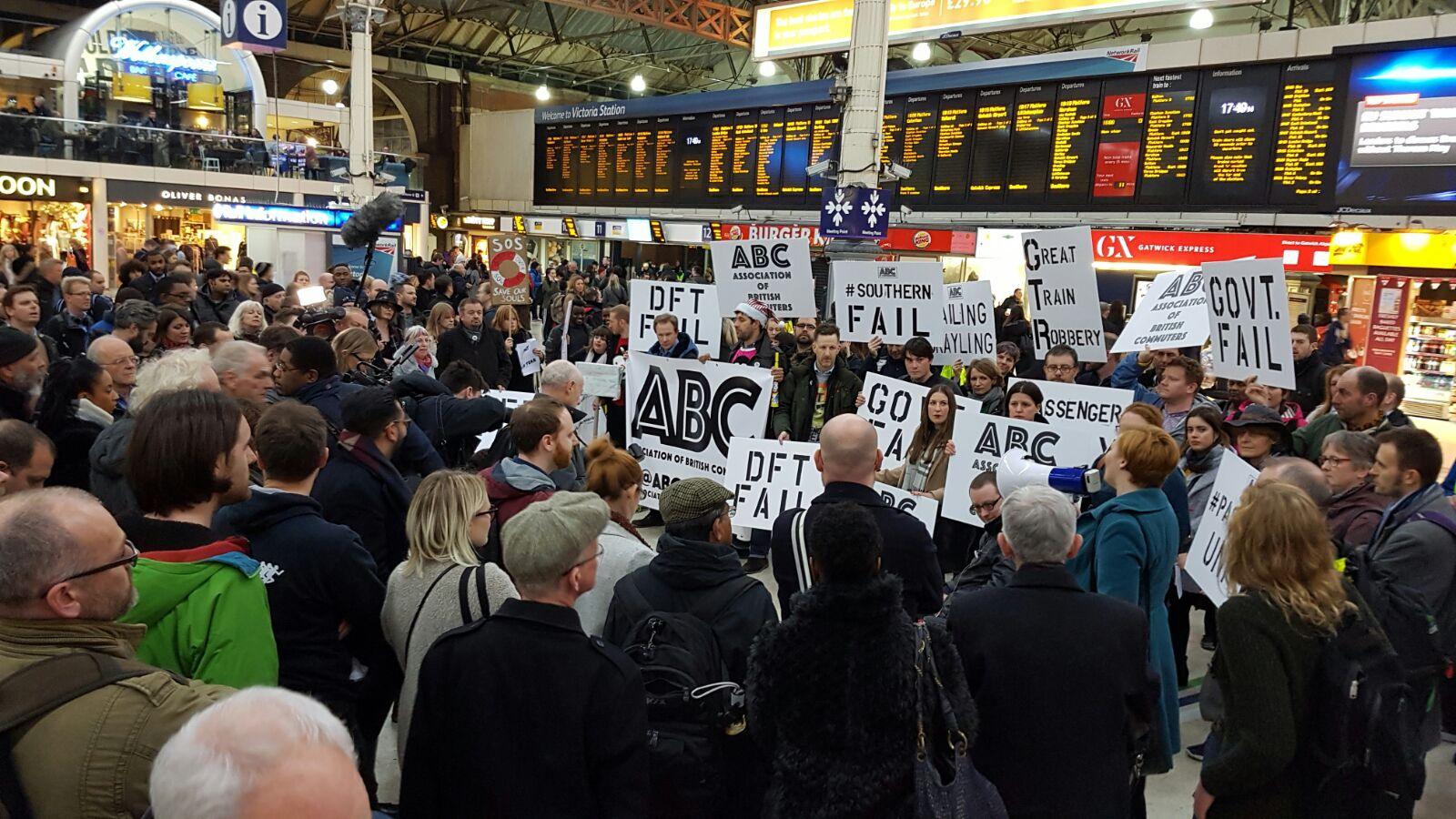
- Published12 June 2017

- Published3 March 2017
